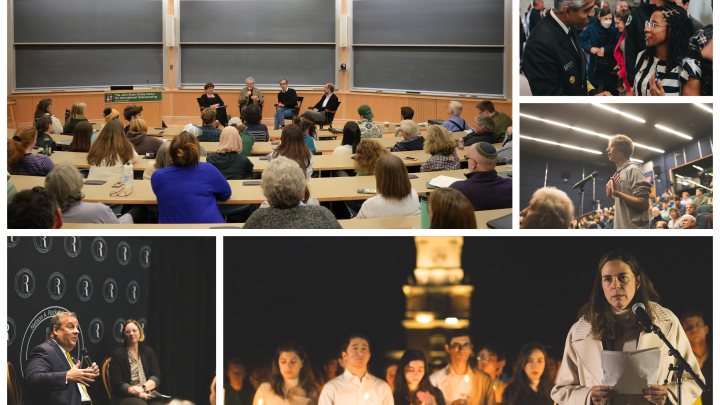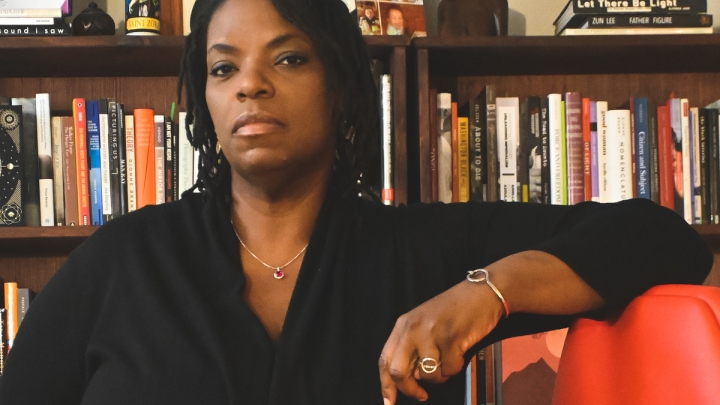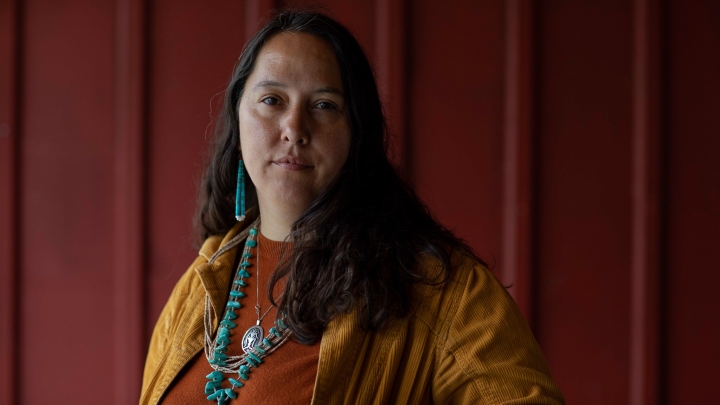Many Cultures, One Community
"Every day I feel like I know more at lunchtime than I did in the morning. I've especially enjoyed meeting other international students and engaging in cross-cultural dialogue with them about their experiences and home countries."
— Tehut Biru '21, Addis Ababa, Ethiopia
At Dartmouth, diversity is one of our great natural resources. It's the foundation of the learning experience and a core element of the campus environment. We have developed several programs and initiatives to help turn that remarkable diversity into inspired collaborations, lifelong friendships, and global networks. We're proud of these efforts and the enduring impact on the students who participate.
"I am a Muslim Filipino, which is a rarity, but growing up in the Bronx, I was used to a highly diverse community. I was excited to find that Dartmouth is a very vibrant quilt. Everybody here is extraordinary in some way. There's no 'typical' to compare yourself against. Our curiosity and our humanity are what bind us. We connect to one another with open hearts."
— Lawrence Abu-Hammour '19, Bronx, NY
The Tucker Center
The William Jewett Tucker Center builds relationships and understanding across identities, engages in dialogue on meaningful issues, promotes interfaith exchanges, and cultivates spiritual and ethical lives that will make a profound difference on campus and beyond.
Office of Pluralism and Leadership (OPAL)
OPAL engages students in identity, community, and leadership development. It provides academic and sociocultural advising, designs and facilitates educational programs, and serves as advocates for all students and communities.
Office of Institutional Diversity and Equity (IDE)
IDE provides resources and creates partnerships across Dartmouth that promote an accessible and inclusive working environment. IDE also hosts evocative films, speakers, and community-building programs.
Living Learning Communities
Our Living Learning Communities make residence hall living a microcosm of the Dartmouth experience. Each community integrates a specific theme into a world-class teaching and learning environment with a vibrant sense of community, all guided and supported through engagement with expert faculty and staff.
Native American Program (NAP)
The Native American Program provides student support services to Native undergraduate students through one-on-one advising sessions and collaborations with Dartmouth faculty, staff, and tribal communities across North America.
Dartmouth College, one of the original nine chartered colonial colleges of America, was founded in 1769 on traditional, unceded Abenaki land along the Connecticut River in New Hampshire. Its founder, The Rev. Eleazar Wheelock, was joined by The Rev. Samson Occom, an ordained minister of the Mohegan Tribe, to dedicate the new school to educating Native American students.
To build and sustain a new college in the wilderness, Rev. Wheelock made use of the uncompensated labor of his enslaved men and women of African descent. Later funding for the College came from private sources tied to profits from the Atlantic slave trade.
After the founding years, the initial vision to educate Native students gave way to an exclusive focus on young men of European descent. The first class of four white men graduated in 1771 to mark the beginning of Dartmouth's distinction as the only colonial college to conduct its educational mission without interruption through the American Revolution to the present.
To the undergraduates' numbers were added students of African descent, who were admitted continuously beginning in 1824, four decades before other Ivy League institutions followed suit. In 1972, the College began the transition to full coeducation. Two years earlier, Dartmouth had revived its founding commitment to Native American students. The Indigenous community is now a visible and valued presence on Dartmouth's campus, with students from more than 70 tribal nations and communities. The legacy of Dartmouth's mission has expanded to foster an inclusive and vibrant college community—with four thriving graduate and professional schools—that embrace principles of equity for all peoples of this diverse world.
Jake Tapper '91 on Financial Aid: Meet Raylen Bark '24
Featured on our Blog
Here's an overview of my experience as a first-generation student at Dartmouth!






